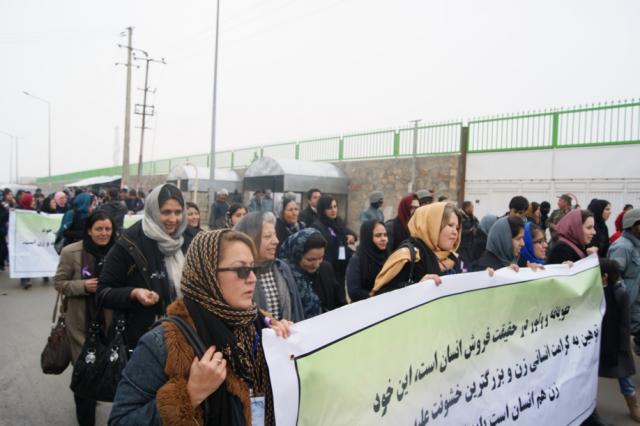US-Taliban Talks: Accountability to human rights and justice is central to enduring peace
The following is the official statement of the Women Living Under Muslim Laws (WLUML) international solidarity network and its partners in Afghanistan, which is addressed to all parties, particularly Afghanistan’s donor countries, who are supporting the direct talks between the Taliban and United States government.
We, the Women Living under Muslim Laws international solidarity network, are dismayed by the announcement that the US government is to start direct talks with the Afghan Taliban. The first round of talks is scheduled to take place in Doha, Qatar, where the Taliban set up a political office in January. We demand that a very clear and explicit commitment be made to guarantee the rights of all, especially the rights of women and children by all parties involved in the talks. Justice and the human rights of all Afghan people, as enshrined in the Afghan Constitution, must be at the centre of any talks or negotiations with the Taliban or any other armed group.
We refuse to be taken in by the promise of ‘peace’ in Afghanistan, which is peddled as the justification for these talks. The only way to bring an end to the ongoing conflict is to engage in a people-centered, all-inclusive peace process committed to gender justice and equality. The peace process must be driven by community-based conflict resolution strategies and informed by the people whose lives have been marred by the conflict in Afghanistan.
We find efforts to portray the Taliban as significantly reformed since 2001, made by some members of the international community, to be deplorable. The Taliban continue to hinder the realisation of even the most basic women’s human rights in Afghanistan and beyond. Their horrific abuses of human rights, both during their rule of Afghanistan (1996-2011) and as insurgents post-2011, are well–documented. Their violation of the rights of women and girls remain endemic in areas still under their control; and, at their hands, women and girls continue to suffer from the most brutal forms of discrimination and violence. Women are deprived of their rights to education, work, freedom of movement, political participation and representation. From 21 March to 21 October 2012, the Afghanistan Independent Human Rights Commission documented more than 4,000 cases of violence against women – a rise of 28% compared to the same period in 2011. However, the actual number of incidents was likely far higher, as women who report such violence still risk reprisal and being stigmatized by their communities.
Despite the 2010 Taliban Code of Conduct (Layeha), which orders fighters to avoid targeting civilians, the Taliban (and other armed groups) continue to breach the laws of war by indiscriminately killing and maiming civilians in suicide and roadside bombing attacks. According to United Nations statistics, civilian casualties increased by 24% in the first 5 months of 2013, with 3,092 civilians killed or wounded. Insurgent groups’ improvised explosive devices were responsible for 74% of casualties during the reporting period.
Entering into negotiations – with the Taliban or any other armed group – must not excuse gross violations of human rights and war crimes.
WLUML and its partners in Afghanistan:
1. Call for the repeal of the 2007 National Stability and Reconciliation Bill, passed by the Afghan parliament, which grants immunity from prosecution to anyone who committed serious human rights abuses over the past 30 years so long as they agree to cooperate with the Afghan government;
2. Demand the meaningful and mandatory participation of women in Afghanistan’s peace, reconciliation and reconstruction processes; and
3. Demand that women’s priority concerns be fully reflected by all UN member states, which is in accordance with the UN Security Council resolutions on women, peace and security.
Currently, there are only 9 women on the 70-member High Peace Council, the Afghan government body charged with leading peace and reconciliation talks with the Taliban and other armed groups. According to reports, these women are being sidelined from the key peace negotiations undertaken by the Council.
In compliance with UN Security Council Resolution 1325, we call on all UN member states to:
1. Ensure women’s meaningful participation in conflict resolution and peace process at the decision-making level;
2. Appoint more women as Special Representatives and envoys;
3. Expand women’s role in peacekeeping operations, particularly among military observers, police, human rights and humanitarian personnel.
All parties involved in negotiating and implementing peace agreements must take into account the special needs of women and girls in armed conflict, support women's peace initiatives and implement international humanitarian and human rights laws that respect the rights of women and girls.
Finally, we would like to express our grave concern over the potential use of the Taliban’s Qatar office as a channel of support and funneling funds to Islamist and extremist movements bent on pursuing “Jihad” in Afghanistan and Pakistan. We call on the international community, through the UN Security Council, to closely monitor the ongoings of this office.



